Addiction treatment can be a life-changing journey, but for many individuals, the cost of care is a significant concern. Fortunately, health insurance can help cover many of the expenses associated with addiction treatment, making quality care more accessible. Understanding how insurance works, what it covers, and how to navigate the verification process can empower individuals and families to take the necessary steps toward recovery without financial stress.
The Role of Insurance in Addiction Treatment
Health insurance plays a crucial role in making addiction treatment affordable. The Affordable Care Act (ACA) mandates that substance use disorder (SUD) services be covered as an essential health benefit, meaning that most insurance plans must offer some level of coverage for addiction treatment. This includes inpatient and outpatient rehabilitation, detoxification services, therapy, and medication-assisted treatment (MAT).
Insurance coverage for addiction treatment varies depending on the provider and policy. Some plans cover a significant portion of the costs, while others may require higher out-of-pocket expenses. Understanding the specifics of an individual’s insurance policy is crucial in determining what services are covered and how much financial responsibility falls on the patient.
Types of Insurance That Cover Addiction Treatment
Several types of health insurance plans cover addiction treatment services. Employer-sponsored health insurance, individual marketplace plans, Medicaid, Medicare, and military benefits through TRICARE all provide some level of coverage for substance use disorders. Each type of insurance comes with different eligibility requirements, coverage levels, and restrictions.
Employer-Sponsored Health Insurance: Many employers provide health insurance that includes addiction treatment benefits. These plans often cover inpatient and outpatient services, detox programs, and therapy sessions. However, the specifics of coverage depend on the employer’s chosen plan and network providers.
Individual and Marketplace Plans: People who purchase their health insurance through the ACA marketplace typically have access to addiction treatment benefits. These plans follow ACA regulations and cover essential health services, including mental health and substance use disorder treatments.
Medicaid and Medicare: Government-funded programs like Medicaid and Medicare provide addiction treatment coverage for eligible individuals. Medicaid, a state-run program, offers varying coverage depending on the state, but it generally includes detox services, inpatient rehab, outpatient treatment, and medication-assisted treatment. Medicare, which primarily serves individuals over 65 and those with disabilities, covers addiction treatment services under certain conditions.
TRICARE and VA Benefits: Active-duty military personnel, veterans, and their families can access addiction treatment through TRICARE or the Department of Veterans Affairs (VA). These programs provide comprehensive coverage for substance use disorder treatments, including detox, inpatient rehabilitation, outpatient care, and medication-assisted treatment.
The Insurance Verification Process
Before beginning treatment, it is essential to verify insurance coverage to understand what costs will be covered and what expenses may be out-of-pocket. Most treatment centers have a dedicated admissions team that helps patients and their families navigate the insurance verification process.
The verification process involves:
- Providing Insurance Information: Patients submit their insurance details, including the provider name, policy number, and group number.
- Checking Coverage Levels: The treatment center contacts the insurance company to determine what services are covered, including inpatient and outpatient care, detox, therapy, and medication-assisted treatment.
- Understanding Out-of-Pocket Costs: Insurance plans often include deductibles, co-pays, and co-insurance. Understanding these costs ahead of time helps patients plan financially.
- Preauthorization and Documentation: Some insurance plans require preauthorization before covering addiction treatment. Treatment centers assist in submitting necessary documentation to ensure approval.
What Insurance Typically Covers
Most insurance plans cover a range of addiction treatment services, but the extent of coverage depends on the specific policy. Commonly covered services include:
Detoxification Services: Medically supervised detox is often the first step in addiction treatment, allowing individuals to safely withdraw from substances. Insurance frequently covers detox programs, though the length of coverage may vary.
Inpatient Rehabilitation: Residential treatment programs provide 24/7 care and structured therapy. Many insurance plans cover inpatient rehab, but the duration and facility options may be restricted by the policy.
Outpatient Treatment Programs: Outpatient care allows individuals to receive treatment while continuing daily responsibilities. Insurance plans usually cover outpatient services, including partial hospitalization programs (PHP) and intensive outpatient programs (IOP).
Therapy and Counseling: Individual therapy, group therapy, and family counseling are essential components of addiction treatment. Insurance generally covers these services, but coverage may depend on the provider’s network status.
Medication-Assisted Treatment (MAT): Some individuals benefit from medications such as methadone, buprenorphine, or naltrexone to manage cravings and withdrawal symptoms. Insurance plans often cover MAT but may require preauthorization.
Aftercare and Relapse Prevention: Continuing care, such as sober living homes, ongoing therapy, and support groups, is crucial for maintaining sobriety. Some insurance plans cover aftercare services, but coverage varies widely.
Barriers to Using Insurance for Addiction Treatment
While insurance provides essential financial assistance for addiction treatment, several barriers can make accessing care challenging.
Limited Provider Networks: Some insurance plans restrict coverage to specific treatment centers and providers within their network. Patients may need to choose facilities based on network limitations or pay higher out-of-pocket costs for out-of-network care.
Preauthorization Requirements: Insurance companies often require preauthorization before approving treatment. This process can delay access to care, especially if the necessary documentation is not submitted promptly.
Coverage Limits and Duration Restrictions: Insurance policies may limit the number of days covered for inpatient treatment or restrict the number of therapy sessions. Understanding these limitations helps individuals plan for their recovery journey.
High Deductibles and Co-Pays: Even with insurance, the cost of addiction treatment can be substantial. High deductibles, co-pays, and co-insurance can create financial barriers for individuals seeking care.
How to Maximize Insurance Benefits for Addiction Treatment
To get the most out of insurance coverage for addiction treatment, individuals should take proactive steps to understand their policy and advocate for necessary services.
Review Policy Details: Reading the insurance policy carefully helps individuals understand what services are covered, network restrictions, and potential out-of-pocket costs.
Work with Treatment Center Admissions Teams: Many rehab facilities have staff members dedicated to helping patients navigate insurance verification and maximize their benefits.
Request Preauthorization Early: If preauthorization is required, submitting requests as early as possible can prevent delays in accessing treatment.
Appeal Denied Claims: If an insurance company denies coverage for a necessary treatment, patients have the right to appeal the decision. Treatment centers often assist with the appeals process.
Consider Alternative Payment Options: If insurance does not fully cover treatment costs, some facilities offer payment plans, sliding scale fees, or financial assistance programs.
The Importance of Seeking Treatment
The cost of addiction treatment should not deter individuals from seeking the help they need. Insurance coverage can make quality care more accessible, reducing the financial burden and increasing the likelihood of a successful recovery. By understanding insurance options, verifying benefits, and working with treatment professionals, individuals can take the first step toward a healthier, addiction-free life.
Navigating insurance coverage for addiction treatment can be complex, but resources and support systems are available to help. If you or a loved one are considering treatment, reaching out to an experienced treatment center can provide clarity and guidance in utilizing insurance benefits effectively. Addiction recovery is a worthwhile investment, and financial barriers should never stand in the way of achieving long-term health and sobriety.



